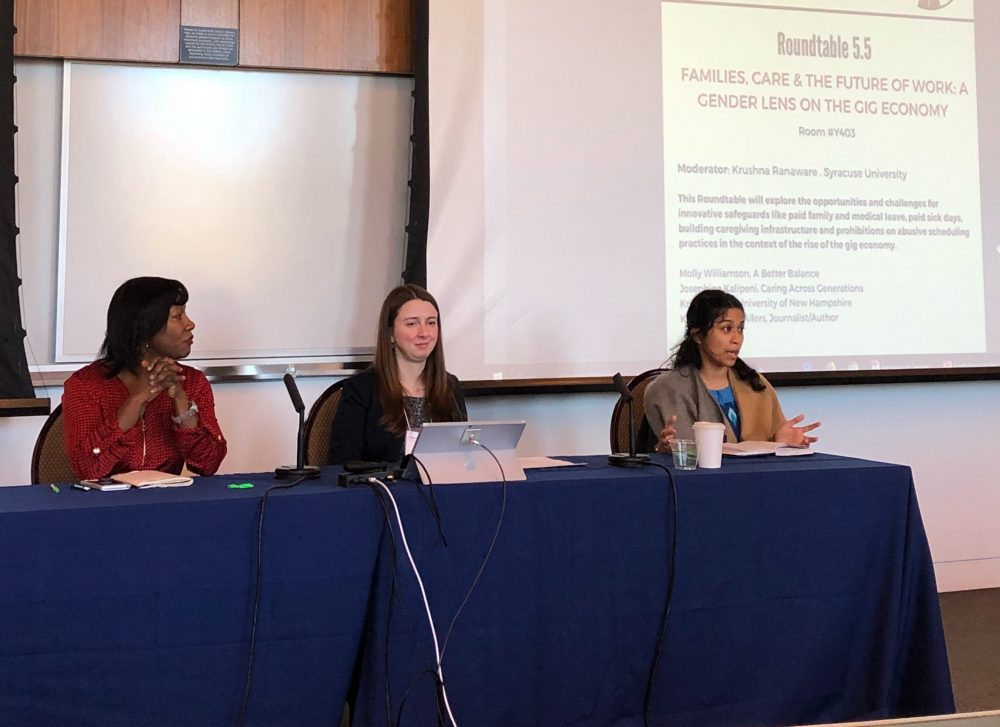This weekend, A Better Balance joined researchers and advocates from across the country in Washington, D.C., for Pathways to Gender Equality, a conference organized by the Institute for Women’s Policy Research and American University’s Program on Gender Analysis in Economics. The conference featured a wide range of economic and policy experts, including such leaders as former Federal Reserve Chair Janet Yellen.
Senior Staff Attorney Molly Weston Williamson spoke on a panel organized by A Better Balance entitled Families, Care & the Future of Work: A Gender Lens on the Gig Economy. She was joined by Josephine Kalipeni, Director of Policy and Partnerships at Caring Across Generations, and writer and activist Kimberly Seals Allers, with research contributed by Kristin E. Smith of the University of New Hampshire’s Carsey School of Public Policy. Krushna Ranuware, of the Maxwell School of Citizenship and Public Affairs at Syracuse University, moderated. The panel explored the opportunities and challenges for innovative safeguards like paid family and medical leave, paid safe and sick time, and universal family care in the context of the rise of the gig economy. The discussion focused on the intersecting impacts of race, gender, and immigration status and the need to value both paid and unpaid care.
Williamson’s remarks built on A Better Balance’s ongoing series of policy briefs on paid leave and the future of work, Constructing 21st Century Rights for a Changing Workforce. The first brief in the series considered how paid family and medical leave laws can cover self-employed workers like freelancers and independent contractors. The second brief, released last month, focuses on how paid family and medical leave laws can effectively cover nonstandard employees, including part-time workers, seasonal workers, temporary workers, and domestic workers. The final brief in the series will look at how paid sick time laws can effectively cover nonstandard workers.








